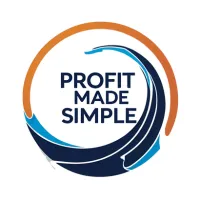Records Retention Guide for Small Business Owners
Know What to Keep, How Long to Keep It, and When to Safely Shred It
Introduction
Keeping the right business records for the right amount of time protects you legally, financially, and operationally. Good record retention helps you:
Stay compliant with CRA and federal requirements
Prepare for audits without stress
Keep your business organized
Reduce the risk of lost or missing documentation
Disclaimer: This guide is for informational purposes only and does not constitute legal or tax advice. Retention requirements may vary by province or industry confirm specifics with your CPA or attorney.
How to Use This Guide
Use the Quick Reference Table as your main resource.
Follow the general rules of thumb, but adjust for your province and industry.
Keep both physical and digital copies whenever possible.
Store originals of critical documents in a secure, fireproof location.
Retention Basics
CRA General Guidelines:
7 years - you have to keep your records (whether paper or electronic) for at least six years from the end of the tax year to which they apply.
Destroy Records - if you wish to destroy your records before the six year period is over, you must first get written permission from the director of your tax services office using Form T137-Request for Destruction of Records, or by making a written request.
Keep Records:
You have to keep records for each year you claim expenses. These records must include all of the following:
a daily record of your expenses, together with your receipts and any cancelled cheques
any ticket stubs for travel
invoices
any monthly credit card statements
a record of each motor vehicle you used for employment. This records must show both the total kilometres you drove and the kilometres you drove for employment purposes in the year
Your receipts for the purchase of merchandise or services have to show the following:
the date you made the purchase
the name and address of the seller or supplier
your name and address
a full description of the goods or service you bought
information regarding the GST/HST you paid on your expensees, or the rate of tax if you are claiming the GST/HST rebate for employees
For more information, see Information Circular IC78-10RS, Books and Records Retention/Destruction
Location of Records
The books and records must be kept at the person's place of business or residence in Canada or another place designated by the Minister and must, upon request, be made available to officers of the CRA for audit purposes at all reasonable times.
Books and records kept outside Canada and accessed electronically from Canada are not books and records in Canada.
Keeping Records
Keeping books and records pertains to a system of recording financial and other information. Records are considered to be kept electronically when information is created, processed, maintained and stored electronically.
More information is available in Information Circular 05-1R, Electronic Record Keeping
Electronic Records Management and Imaging
When original source documents and records are in an electronic format, they must be kept in an electronically readable format even if they have been transferred to another medium such as microfilm.
National standard publication entitled Electronic Records as Documentary Evidence (CAN/CGSB-72-34 2005) will outline electronic record management policies, procedures, practices and documentation that will assist in establishing the legal validity of an electronic record.
Quick Action Checklist
Schedule annual record review.
Verify cloud backup and security settings.
Confirm compliance with province/industry retention rules.
Purge old records per the retention rules.
Reflection Prompt
If you reviewed your record-keeping system today, what’s the one change that would make it more organized, compliant, and stress-free?

DISCLAIMER: While we strive to provide valuable guidance and support, individual results may vary and are dependent on factors such as individual effort and implementation. We are not liable for any outcomes resulting from the use of our services or products. Clients are responsible for their own actions and results.
Profits R4U ©2026 All Rights Reserved .
bonnie@profitsr4u.ca
